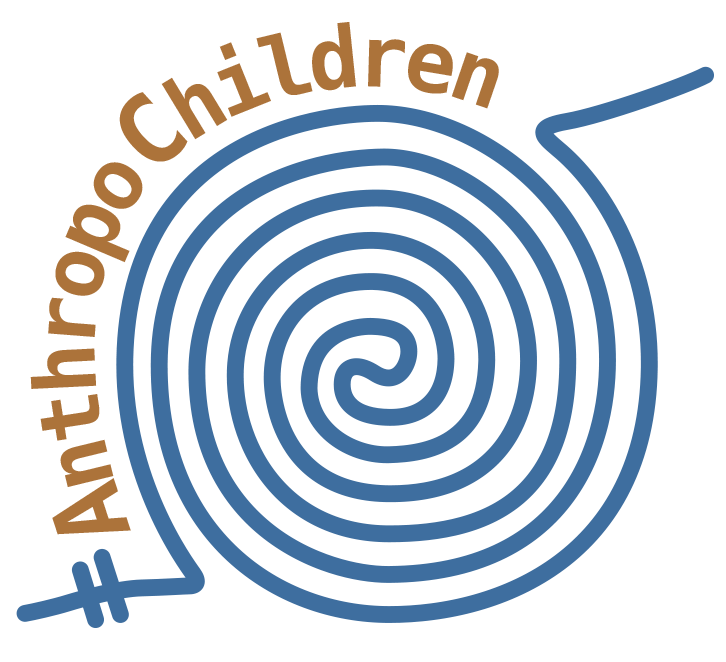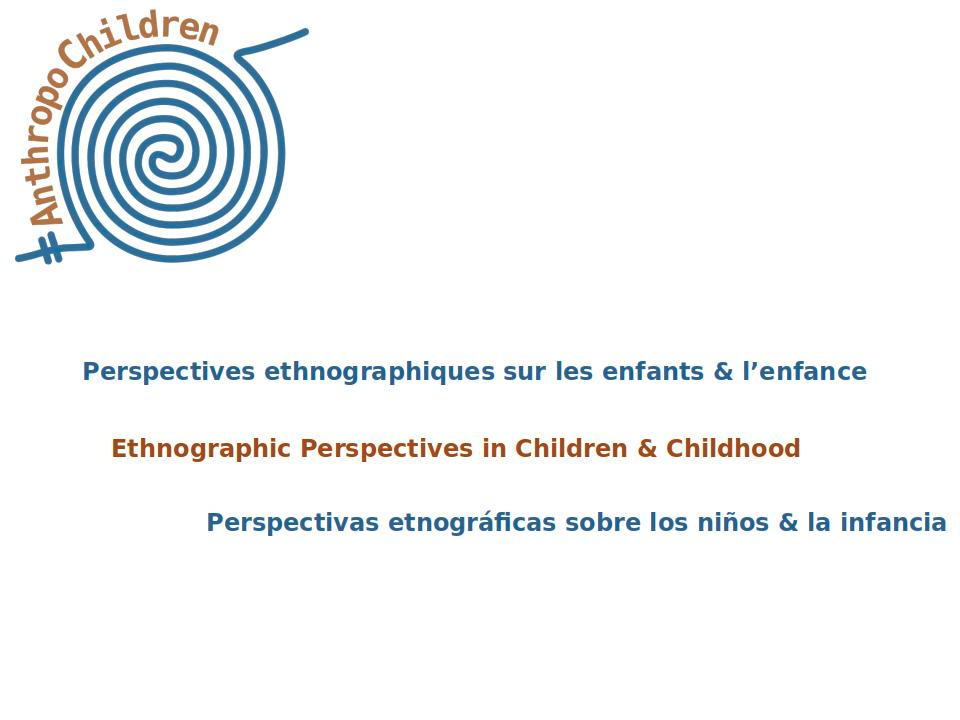AnthropoChildren (eISSN 2034-8517) is an international, trilingual, open access online review (French, English, and Spanish), uploaded by the University of Liège (Belgium). The review publishes original work in the field of social and cultural anthropology of children and childhood. The review is a space devoted to dialogue between researchers, lecturers, students, professionals and society.
The importance of long-term ethnographic fieldwork and participant observation, as a step and form of relation in the reflexive process of the building of the object, is the starting point of the critical question setting of the review. If the anthropology of children and childhood, promoted by the review, can rightfully constitute a research field, it necessarily forms part of general anthropology (especially of kinship, religion, economics and politics).
The review aspires to rapprochement and to dialogue between the different anthropological academic traditions anchored in ethnographic fieldwork of/for/with groups, communities and societies of the whole world.
The published articles aim at reinforcing dialogue between anthropologists and a broader public (society, NGO’s and national and international public authorities). Thorough reflection on scientific, social, political and pedagogic debates within anthropology is also encouraged.
The review is published up to twice a year in two numbers. The selection criteria for manuscripts is the following: originality, methodological and theoretical rigor, ethnographic data, presentation and style, quality of analysis and argumentation, awareness of existing literature and contribution to the anthropology of children and childhood.
Organization of the review
A volume of AnthropoChildren can take two forms:
- Special issue consist of a maximum of eight related texts (following a call for contributions) organized by a maximum of three coordinators, who are not necessarily part of the review committees; Special issue is under the supervision of the coordinators and the review committee;
- Varia issue consist of a maximum of eight texts sent independently to the editors.
Specia land Varia issues may include up to one text from the social sciences, such as, but not limited to: history, philosophy, sociology, psychology, ethno-linguistics, ethno-botany, economics, political sciences, geography or ecology… Its author(s) must engage in their contribution with anthropological case studies, themes and/or theoretical or methodological questions.
Every issue also includes contributions in the following two sections:
- Debates & Controversies: these articles concern subjects of actuality, debates (past or contemporary), polemics or events linked to children and childhood in the world; they take the form of spontaneous reactions, comments on texts and/or debates of ideas from an anthropological perspective; they may also discuss notions, points of method or specific approaches.
- Teaching & Learning: these articles take an interest in the way the anthropology of children and childhood is taught and learned around the world, both in its institutional, theoretical, methodological, thematic and pedagogic dimensions, in a country or a region.
Submitted articles (6,000 to 8,000 words) will be anonymously peer reviewed. Shorter contributions (3,000 to 4,000 words) in the other two sections will be reviewed by the editorial committee. All texts must be in line with the editorial norms of the review.
Frequency
The Review publishes until two issues a year in French and/or in English and/or in Spanish.
Guidelines for Authors (pdf)
Direction of the review
Scientific editors
Élodie Razy
Charles-Édouard de Suremain
Neyra Patricia Alvarado Solís
Editorial committee
Élodie Razy, Professor in anthropology, Faculté des Sciences Sociales, Laboratoire d’Anthropologie Sociale et Culturelle, Université of Liege, Belgium
Charles-Édouard de Suremain, Researcher in anthropology, CIESAS-UMR 208 PaLoc, IRD-MNHN, Mexique-France
Neyra Patricia Alvarado Solís, Researcher in anthropology, Programa de Estudios Antropológicos, El Colegio de San Luis, AC, Mexico
Marie Campigotto, PhD student in anthropology, Faculté des Sciences Sociales, Laboratoire d’Anthropologie Sociale et Culturelle, Université of Liege, Belgium
Scientific committee
Doris Bonnet, France; Lorenzo Bordonaro, Portugal; Aigli Brouskou, Greece; Gladys Chicharro, France; Clarice Cohn, Brazil; Natacha Collomb, France; Filip De Boeck, Belgium; Julie Delalande, France; Sandra J.T.M. Evers, The Netherlands; Peggy Froerer, United Kingdom; Alma Gottlieb, United States of America; Élise Guillermet, France; Suzanne Lallemand, France; David F. Lancy, United States of America; Palmira La Riva González, Pérou; Isabelle Leblic, France; Susan Levine, South Africa; Guy Massart, Belgium; Angela Nunes, Portugal; Véronique Pache Huber, Switzerland; Laurence Pourchez, France; Jacqueline Rabain-Jamin, France; Jean-Pierre Rossie, Belgium; Andrea Szulc, Argentina; Dorte Thorsen, United Kingdom; Saskia Walentowitz, Switzerland
Contacts
AnthropoChildren
Élodie Razy
Université de Liège
Faculté des Sciences Sociales Bât. 31
Quartier Agora – Place des Orateurs, 3
B-4000 Liège
Belgique
Elodie Razy : Elodie.Razy@uliege.be
Charles-Édouard de Suremain : suremain@ird.fr
Neyra Patricia Alvarado Sólís : neyra.alvarado@colsan.edu.mx
Intellectual Property
According to the “Budapest Open Access Initiative” (BOAI, 2002), any users is permitted to read, download, copy, distribute, print, search, or link to the full texts of the articles available on this site, crawl them for indexing, pass them as data to software, or use them for any other lawful purpose, without financial, legal, or technical barriers other than those inseparable from gaining access to the internet itself.



